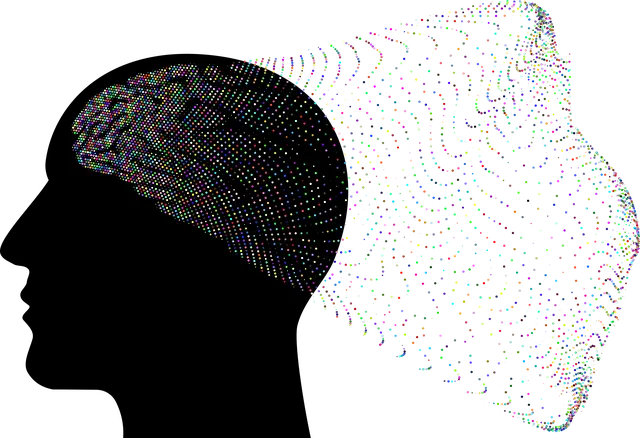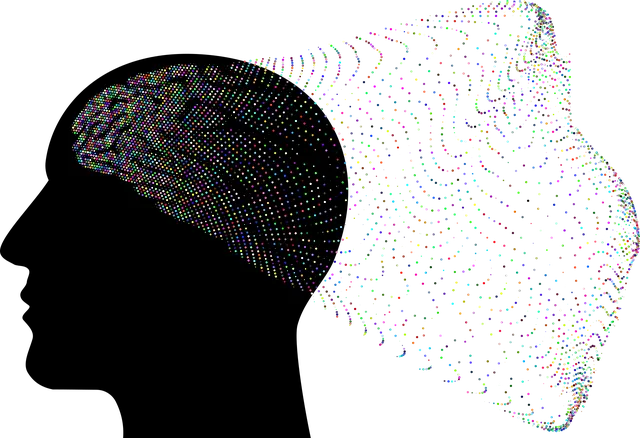Louisville Kaiser Permanente's comprehensive mental health coverage leads by example in media representation, destigmatizing mental illness and fostering a supportive community. By collaborating with media entities and implementing innovative programs like self-awareness exercises and risk assessments, they promote accurate depictions of diverse mental health experiences, empowering individuals to seek help and reduce stigma.
In today’s media landscape, the representation of mental illness plays a pivotal role in shaping public perception and understanding. This article delves into the impact of media portrayal on mental health attitudes, highlighting the positive initiatives of Louisville Kaiser Permanente in enhancing mental health coverage. We explore challenges in accurately depicting mental illness in popular media and offer strategies to foster more nuanced and beneficial representations. Furthermore, we emphasize the critical role of collaborating with healthcare providers as a key solution for improving mental illness media portrayal.
- Understanding the Impact of Media Portrayal on Mental Health Perception
- Louisville Kaiser Permanente's Approach to Mental Health Coverage
- Challenges in Accurately Representing Mental Illness in Popular Media
- Strategies for Promoting Positive Mental Health Depictions in Mass Media
- Collaborating with Healthcare Providers: A Key Solution for Accurate Representation
Understanding the Impact of Media Portrayal on Mental Health Perception

The media’s portrayal of mental illness can significantly shape public perceptions and understanding of various psychological conditions. This is especially pertinent when considering that Louisville Kaiser Permanente mental health coverage serves a vast community, where accurate representation in media can foster a more accepting and informed society. When media platforms depict mental health struggles in a sensitive and authentic light, it encourages self-awareness exercises and promotes open conversations. This shift can lead to reduced stigma, enabling individuals to seek necessary support without fear of judgment.
Furthermore, the design of mental health education programs and stress management workshops within organizations can benefit from this improved understanding. By recognizing the influence of media, these initiatives can be tailored to address common misconceptions and provide valuable resources for employees or community members. Louisville Kaiser Permanente, with its comprehensive mental health coverage, has an opportunity to contribute to these discussions, ensuring that the services they offer are accessible and appealing to those in need.
Louisville Kaiser Permanente's Approach to Mental Health Coverage

Louisville Kaiser Permanente has pioneered a comprehensive approach to mental health coverage, aiming to destigmatize and improve access to care. Their strategy involves a multi-faceted initiative that includes extensive training for healthcare providers on recognizing and addressing various mental health conditions. By integrating this learning into their routine practices, the organization ensures that patients receive empathetic and effective treatment.
Additionally, Kaiser Permanente Louisville emphasizes preventive measures like self-esteem improvement programs and burnout prevention workshops to empower individuals and reduce the risk of severe mental health issues. They also conduct regular risk assessments for mental health professionals to identify potential risks early on, fostering a supportive environment where both patients and caregivers can thrive.
Challenges in Accurately Representing Mental Illness in Popular Media

In recent years, there has been a growing awareness of the need for more accurate and nuanced representations of mental illness in popular media. However, challenges remain in depicting these complex conditions with sensitivity and authenticity. Often, media portrayals fall into stereotypical traps, reducing mental health issues to simplistic narratives or sensationalized storylines. This can lead to further stigma and misunderstanding among viewers, especially when sensitive topics like depression, anxiety, or schizophrenia are misrepresented. For instance, the portrayal of individuals with mental illnesses as inherently dangerous or unpredictable can perpetuate harmful misconceptions, hindering support and access to care.
Addressing these challenges is crucial, and organizations like Louisville Kaiser Permanente play a vital role in this process. Their comprehensive Mental Health Policy Analysis and Advocacy initiatives complement community outreach program implementations, ensuring that accurate information reaches diverse audiences. By promoting awareness and dispelling myths, these efforts contribute to better understanding and more effective mood management strategies for individuals facing mental health struggles. Such proactive measures are essential steps towards creating a more inclusive media landscape that reflects the realities of mental illness, echoing the need for sensitive representation in popular culture.
Strategies for Promoting Positive Mental Health Depictions in Mass Media

Promoting positive mental health depictions in mass media is crucial for fostering a culture of understanding and support. Louisville Kaiser Permanente’s mental health coverage can serve as a model for other institutions, highlighting the importance of comprehensive insurance options that make therapy accessible. By encouraging open conversations about mental health, media platforms can reduce stigma and increase public awareness. This shift requires collaborative efforts from content creators, industry professionals, and healthcare providers.
Implementing strategies such as Inner Strength Development and Self-Awareness Exercises within media production can ensure accurate and nuanced portrayals of mental illness. Additionally, Healthcare Provider Cultural Competency Training is vital to educating professionals on the diverse experiences of individuals with mental health conditions. These steps are essential in creating a more inclusive media landscape that reflects the reality of mental health struggles while offering hope and encouragement for those seeking support.
Collaborating with Healthcare Providers: A Key Solution for Accurate Representation

Collaboration between media entities and healthcare providers is a powerful strategy to ensure accurate and sensitive representation of mental illness. Louisville Kaiser Permanente, for instance, has been at the forefront of this initiative, offering comprehensive mental health coverage that supports various emotional well-being promotion techniques. By involving mental health professionals in the creative process, media platforms can educate audiences about different conditions, dispel stereotypes, and foster empathy.
This partnership facilitates a deeper understanding of the complexities surrounding emotional regulation and emotional healing processes. Healthcare providers can guide scriptwriters, directors, and journalists to portray characters with mental illnesses authentically, avoiding simplistic or exploitative narratives. Such collaboration ensures that media content not only entertains but also informs, promoting a more compassionate and informed society where individuals struggling with mental health issues are supported rather than stigmatized.
In addressing the challenge of mental illness representation in media, we look towards initiatives like Louisville Kaiser Permanente’s innovative mental health coverage as a model for positive change. By collaborating with healthcare providers and implementing strategic approaches to depiction, we can significantly shift public perception and improve mental health support systems. Through accurate and sensitive media portrayals, we have the power to foster understanding, reduce stigma, and ensure those seeking help find resources that meet their needs.






